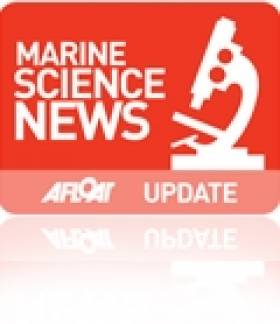Displaying items by tag: SMARTSkills 2014
SMARTSkills Workshop For Marine Researchers In Galway This Month
#MarineScience - The Strategic Marine Alliance for Research and Training (SMART) and the Marine Institute will host a one-day SMARTSkills 2014 workshop on Wednesday 27 August in Oranmore, Galway.
This workshop is aimed at preparing early-stage researchers in developing successful proposals in order to secure shiptime in 2015 on the national research vessel RV Celtic Voyager.
The 2015 competitive shiptime call will make available 30 days on board the RV Celtic Voyager in mid-summer 2015 for graduate, postgraduate and postdoctoral led surveys.
This presents an opportunity for emerging marine scientists to design, plan, secure funding and lead a research survey that will contribute data to current research programmes as well as further developing the skills, knowledge and expertise required for a career in ocean research.
The workshop will specifically focus on the following areas:
- Upcoming 2015 shiptime call and online application procedure
- Available infrastructure, equipment and instrumentation
- Developing successful shiptime proposals and tips for success
- Planning and designing a research survey at sea
- Supports for gaining offshore experience and skills
- Break-out sessions and networking for multidisciplinary collaborations
SMARTSkills 2014 will take the form of a colloquium for presentations and networking. Participants will have the opportunity to introduce themselves and their research interests through flash presentations (two minutes, one slide) to facilitate networking.
Focused break-out sessions will stimulate discussions amongst peers and meld these goals into potential collaborative multidisciplinary surveys or complementary shiptime proposals based on disciplines or study areas.
And a ‘proposal surgery’ will allow expert scientists to analyse and advise on preliminary shiptime proposals and input on survey plans.
Registration for this workshop is free and open to all marine-related graduate, postgraduate and postdoctoral students from across the island of Ireland. Registration forms should be submitted no later than Thursday 21 August.
A draft workshop schedule is available, as are practical logistical instructions on travelling to the Marine Institute and participating in the workshop.
For further details contact the SMART team at [email protected].





























































